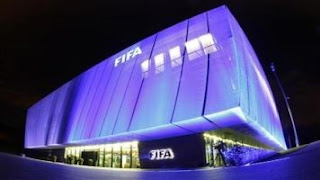REVIEWS
The Kingdom joined the rest of the world in observing International Anti-Corruption Day on Tuesday to raise awareness about the importance of making Saudi Arabia a corruption-free country.
The Anti-Corruption Day is observed by the United Nations every year on Dec. 9 in order to highlight the evils of corruption and its negative impact on government systems globally.
“Nazaha aims to create an environment of integrity, transparency, honesty and justice,” he said.
Addressing the session, Firas bin Falah Gharaibeh, UNDP representative, said corruption is the root cause of delayed progress of a country.“The UN recognizes the need to collaborate with different partners to combat corruption,” he said.
“Saudi Arabia’s rank in the 2014 corruption perception Index by Transparency International improved by three points (from 46 in 2013 to 49 in 2014) and that highlights the ongoing efforts and progress made by the Saudi government through Nazaha,” he added.
The Anti-Corruption Day is observed by the United Nations every year on Dec. 9 in order to highlight the evils of corruption and its negative impact on government systems globally.
To mark the occasion, Nazaha, Saudi national anti-corruption commission, hosted a forum under the patronage of Riyadh Gov. Prince Turki bin Abdullah bin Abdul Aziz.
A seminar entitled “The role of medial and cultural institutions in maintaining integrity and fighting corruption” was organized by Nazaha on the sidelines of the event. In his welcome address, Mohammed Al-Sharief, Nazaha chief, said that fighting corruption is a national duty.
Calling upon citizens as well as media outlets to help in the fight against corruption, he said: “The media has a significant role to bring about awareness of corruption in society.” He urged the social media outlets to help in making the Kingdom corruption-free.
“The role of the media, cultural institutions and social networks, including the opinions of writers, literary clubs and the contribution of educated men and women, is significant in promoting and maintaining integrity and fighting corruption,” Al-Sharief added.“Nazaha aims to create an environment of integrity, transparency, honesty and justice,” he said.
Addressing the session, Firas bin Falah Gharaibeh, UNDP representative, said corruption is the root cause of delayed progress of a country.“The UN recognizes the need to collaborate with different partners to combat corruption,” he said.
“Saudi Arabia’s rank in the 2014 corruption perception Index by Transparency International improved by three points (from 46 in 2013 to 49 in 2014) and that highlights the ongoing efforts and progress made by the Saudi government through Nazaha,” he added.

Comments